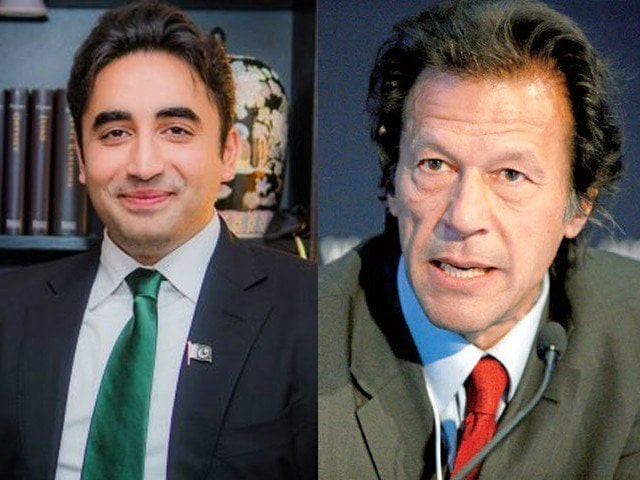Gentlemen (Sahibs) and Gentlewomen (Sahibas)
The aristocratic political families in Pakistan have so far secured privileged places in politics

The aristocratic political families in Pakistan have so far secured privileged places in politics, PHOTO: FILE
Nobody should expect that mistakes would not be made while working. In fact, mistakes would only be made if you work; but as long as you continue to hold ‘to the sense of higher purpose’, you would be able to learn from those mistakes and move on. A man is addressed as gentleman (sahib) and women never as gentlewoman (sahiba) in English language. Maybe because women are mild and gentler already and like men maybe need no reminders to act gently all the time.
The nation saw whole two days of social media, especially the electronic media, being wasted on the topic of ‘sahib’ and ‘sahiba’. While the politicians will continue to make mistakes (slip of tongue or deliberate is not the question), it is media that creates the hype by creating a mountain out of a mole hill and out of a trivial logic. After all, Aristotle, the great scholar and teacher of Alexander the Great, called all men liars and all women artificial; and in his recommended political system, women, slaves and foreigners were explicitly excluded from the right to rule themselves and others. Bernard Shaw famously remarked “no man dare write truth about marriage while his wife lives”. Bernard Shaw also considered Troilus and Cressida as William Shakespeare’s best-written play — an assessment with which most of us may not agree. Most of us may not agree about what Aristotle had to say about the women as well. But the status of women has changed remarkably and Will Durant in his book The Pleasures of Philosophy writes that “it is not the world wars or the Russian Revolution — the greatest transformation of the 20th Century is the change in the status of woman.”
Greece fell to pieces despite its morals; the Roman Empire disappeared from the world despite its classicism and rule for over 500 years. Yet those tremendous history-changing events occurred not because of poor oratory of the leadership or their ‘slip of tongues’ but as Goethe said their “inability to hold on to a sense of higher purpose”.
Personally, I have no doubt in the sense of higher purpose that Imran Khan, our Prime Minister, believes in. There are frustrations and disappointments along the way but the garbage bag that this nation carries on its shoulders is also very heavy. It is up to the people to decide whether they want to continue to carry the garbage bag or throw it away and let their shoulders instead carry responsibilities, honour, selfless commitments and national pride — the foundation of all this can be laid now but the overhaul and change will take a generation or next to materialise.
In the meantime, the media needs to decide what it should do with the current trend of ‘personalisation of politics’. Media cannot allow politics to change its focus from ‘ideas to people’ and from ‘parties to politicians’. Maximising the ‘human pseudo-events’ only downplays the big, wanting, weary social and political picture of this country. The infotainment through which media tries to meet the needs and expectations of the average audience by highlighting the personal and non-political characteristics of the politicians has served us little so far.
The aristocratic political families in Pakistan have so far secured privileged places in politics. They have done everything to erode the impersonal bureaucratic system in the country and prevented institutional changes (reforms) and provoked only political decay. For decades, politics in this country has vetoed reforms. While violence is a problem that politics everywhere is entitled and expected to solve, in Pakistan when a ‘particular and non-delivering corrupt’ system of politics is challenged, it stops looking at violence as a problem that it needs to solve but threatens to rather resort to it to showcase political stay and legitimacy.
The failing of democracy comes in many ways and the most dominant of them is — state weakness. This cannot and should not be allowed. Political order and order in society must always receive priority over any kind of democratisation. It is the responsibility of the state to ensure that it creates the moral, social and political conditions in which it is possible for an accountable government to operate and govern. The great balance missing in the Pakistani politics is the balance between a strong state and a strong society. Politics has so far done very little to make sure that a strong society emerge in this country. To do this, politics needs ‘moral education’ to put people’s interest above its own.
Gentlemen (sahib) and gentlewomen (sahibas) are not our problems. Our problem is the lack of self-consciousness, self-awareness, lack of that pain of honest political confrontation that generates in the masses the trust and respect for politicians and politics. The ‘denial political philosophy’, the ‘victim mentality’, the unending greed of how to gain and achieve rather than how to lose and let go are our political problems.
As Von Goethe said, if we have to develop and grow fully as a society then we may have to flirt with the things that might be dangerous but we cannot give in and must continue to hold on to the sense of higher purpose.
Published in The Express Tribune, April 28th, 2019.
Like Opinion & Editorial on Facebook, follow @ETOpEd on Twitter to receive all updates on all our daily pieces.















COMMENTS
Comments are moderated and generally will be posted if they are on-topic and not abusive.
For more information, please see our Comments FAQ